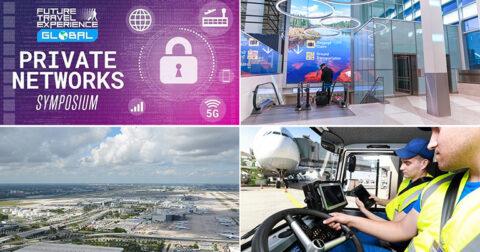Fraport is positioning itself at the forefront of digital transformation and running several Artificial Intelligence (AI) projects under the umbrella of its AI@Fraport initiative. In this deep-dive interview ahead of his participation at FTE Global – the ‘CES of Aviation’ taking place in Los Angeles on 28-30 October 2024 – Rolf Felkel, Senior Vice President Applications and Partner Management, Fraport, explains what AI@Fraport involves and the business case and learnings so far.
Explore the full FTE Global 2024 schedule at a glance here >> Register for FTE Global 2024 >>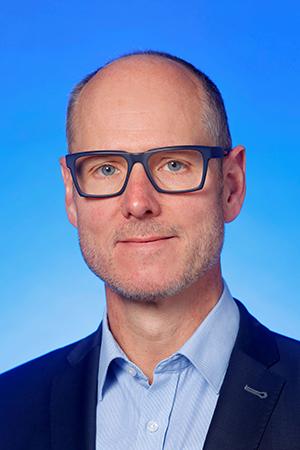
With the AI@Fraport initiative, the Fraport Group is utilising AI to make processes more efficient and redesign work environments. The overarching goal is to make Fraport fit for the future, while increasing the satisfaction of airlines and passengers and innovatively supporting employees.
Felkel is participating in the ‘FTE AI Symposium’ at FTE Global, with a presentation focused on ‘What exactly does the AI@FRA programme look like and what business cases and learnings can be shared from the effort so far?’
“AI makes the difference – especially at airports,” Felkel shares. “We address multiple business opportunities in operations and administration of our Airport City FRA and at our subsidiaries worldwide. Doing so we see that Generative AI (GenAI) and Large Language Models (LLMs) are not the one and only approach, but also special AI algorithms and solutions such as computer vision and reinforcement learning can generate a tremendous impact.”
The initiative started at Frankfurt Airport (FRA) as AI@OPS, addressing the ground handling operations and aviation operations at FRA. In the next step, Fraport explored use cases for office workers and named this part of the initiative AI@Workplace. “The third work area, AI@Basics, lays the foundations for the use of AI, develops ethical guidelines, defines the AI strategy, and draws up an awareness and communication plan to reach all employees,” Felkel explains. “Broadening the geographical scope from Frankfurt to all of our subsidiaries worldwide, we renamed the initiative AI@Fraport.”
Meanwhile, 10 projects under this umbrella include:
- Performance System FRA to increase punctuality in aviation.
- IDA (Intelligence Dispatching Agent) – next-generation dispatching in ground handling.
- LuRAI – computer vision in baggage handling.
- FraportGPT – Fraport’s version of ChatGPT.
- MS Copilot intro – an initiative to foster the Microsoft CoPilot product.
- PPDLS – computer vision in turnaround management.
- Computer Vision at LJU – computer vision in turnaround management at Ljubljana Airport.
- Noise complaint management to reduce effort in answering aircraft noise complaints.
- EIBT-15 prediction – better prediction on aircraft in block time.
- VIP service interaction – faster response on special service requests in Fraport’s VIP service.
- Plus, more to come.
Business cases and learnings from AI@Fraport initiative so far
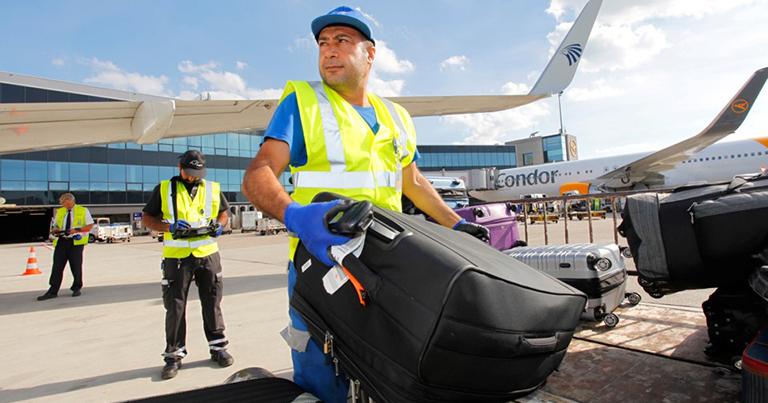
In terms of business cases and learnings from the AI@Fraport initiative so far, Felkel highlights that improved, AI-supported planning algorithms help achieve better resource allocation, while AI-based dispatching solutions help to guarantee the agreed service level to airline customers. “Examples include IDA (Intelligence Dispatching Agent) fpr better and forward-looking dispatching of loading crews at our ground handling subsidiary,” says Felkel. “Other business cases are the automation of noise classification for noise recording in the surrounding communities (70% degree of automation) or correcting tracking errors in baggage handling (95% degree of automation in reducing misalignments in the baggage handling system).”
Among the key findings noted by Felkel are:
- AI is not possible without data.
- AI projects need even more and better change management than any other type of IT project. AI projects are 20% technology and 80% cultural change.
- Need for an AI strategy that includes AI-literacy (empowerment), communication (inform) and leadership (inspire).
“Cloud services are essential on our AI journey to achieve scalability, flexibility and speed of innovation within a secure environment,” Felkel adds.
Fraport utilising AI to enhance both the customer experience and operational efficiency. “In the case of our B2B customers the answer is quite easy: operational efficiency supports not only cost reduction but also a more stable service level,” says Felkel. “That automatically fosters good customer experience at our airline customers. Most of our projects contribute to our quality objectives like improved punctuality, reduction of baggage left behind, or shorter waiting times.”
Meanwhile, GenAI is becoming increasingly important for Fraport in all areas, especially for the personal productivity of information workers with FraportGPT or MS Copilot, for example. “We are also integrating it into complete business processes, such as the semi-automated response to noise complaints or VIP requests,” Felkel explains. “Use cases that are still in the backlog include contract and receivables management, correspondence in construction projects and customer service chatbots.”
Embracing innovative tech “to create a smoother, more efficient travel experience”
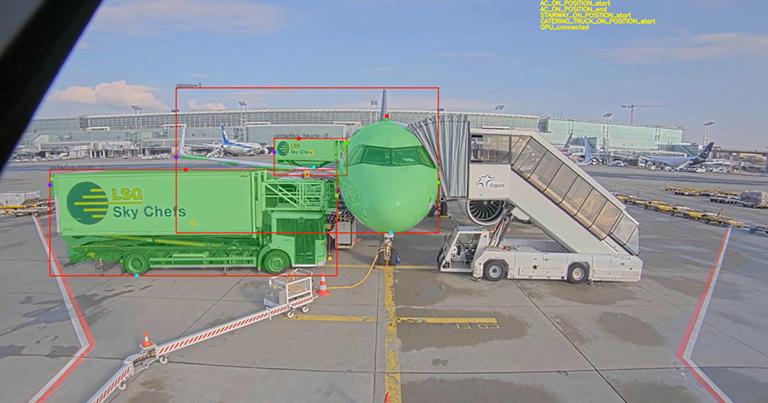
In addition to AI, Fraport is exploring many other technologies as part of its digital transformation strategy. Indeed, there are more than 100 IT projects running at FRA simultaneously, in all the different parts of the company. These include cloud technologies, private 5G network, digital twin, Internet of Things, biometrics, robotics and automation, and more.
“Passenger experience enhancements include biometrics for seamless travel, process automation for efficiency, and advanced CT scanners in security for faster and safer checks,” says Felkel. “And in future we plan to use AI for an even faster and more secure CT scan analysis. Additionally, large language models are being utilised to improve communication with passengers. These technologies collectively aim to create a smoother, more efficient travel experience.”
Beside typical AI solutions, Fraport is exploring cyber-autonomous systems in ground operations (e.g. autonomous driving and robotics) and the potential of quantum computing. “Especially in the areas of cybersecurity and AI optimisation, quantum will change everything,” Felkel explains. “These innovations promise significant advancements in efficiency and security. By staying at the forefront of technological developments, Fraport aims to continually enhance its operational capabilities and passenger experience.”
FTE Global: “A valuable exchange with colleagues from all around the world”
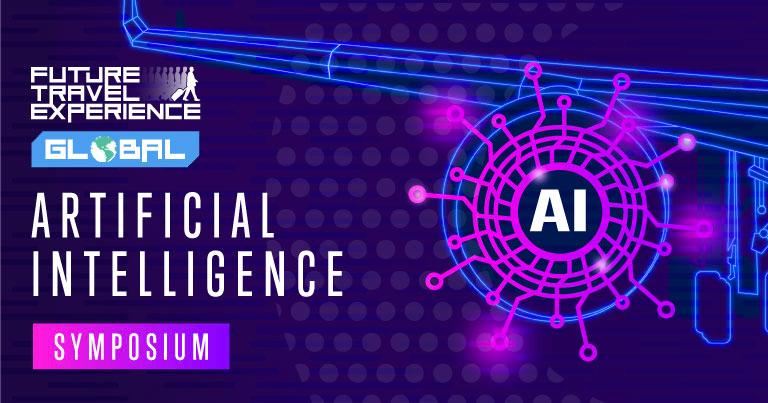
Looking ahead, Felkel is eager to participate in FTE Global – the ‘CES of Aviation’ taking place in Los Angeles on 28-30 October 2024. “I’m excited to come to LA and discuss with my colleagues from all over the world. I know that there are differences in the state-of-play in different regions of the world. But there are also different cultural and legal backgrounds to be addressed in the different regions. Even if the challenges and opportunities seem to be similar, solutions and backgrounds are slightly different. But that makes the exchange with colleagues from all around the world even more valuable.”
Explore the full FTE Global 2024 schedule at a glance here >> Register for FTE Global 2024 >>